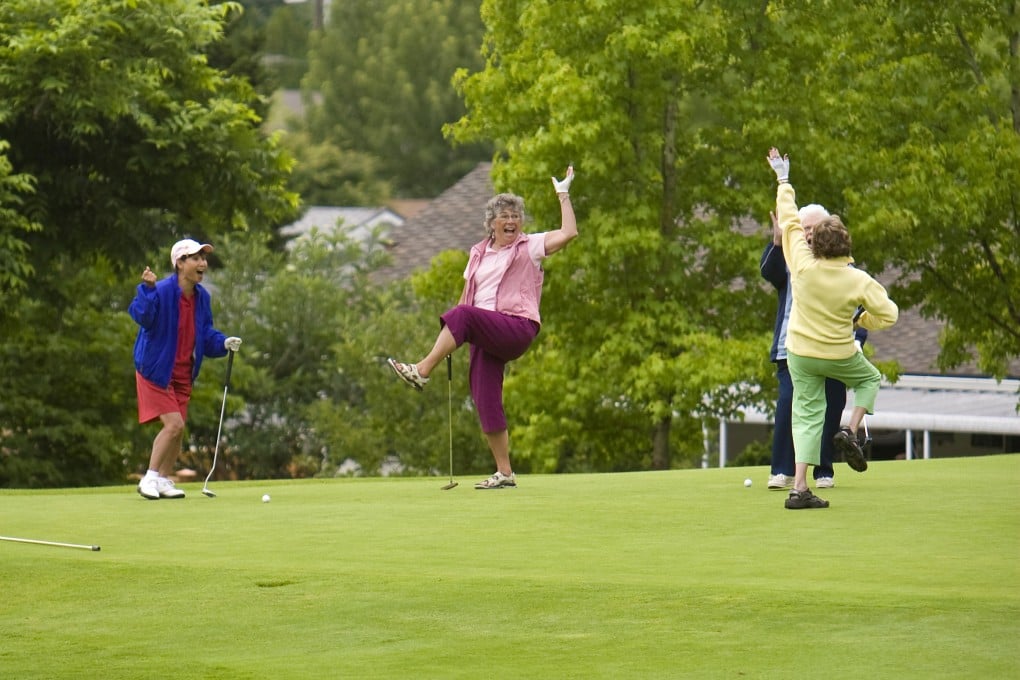How to age well: playing golf can add years to your life, studies suggest
- Elderly people who play golf have greater muscle strength, endurance, flexibility and balance than peers who don’t play the sport
- There are also mental health benefits, and the social aspect of exercising with friends is thought to give emotional well-being an extra boost

Winnie Teoh always feels good after a game of golf with friends. “It’s not just a fun way to stay fit,” says the semi-retired 70-year-old. “Golf also keeps my mind sharp and focused, plus I enjoy the social aspect of the sport – it’s an opportunity for me to catch up with friends and meet new people who share my love for the game.”
Teoh, who looks years younger than her age, started playing golf in 2003. She usually plays at the Mission Hills Golf Club in Shenzhen in China, just over the border from Hong Kong, and regularly joins golf outings organised by the Hong Kong Seniors Golf Society (HKSGS) and ZGS, the golf club of an international professional women’s organisation.
Golf may just be the perfect way for elderly people to maintain their physical and emotional well-being. In February 2020, research presented at the American Stroke Association’s International Stroke Conference revealed that golfing at least once a month is linked to a lower risk of death among older adults.

Researchers followed nearly 5,900 adults aged 65 and up for a decade, and found that those who were regular golfers, playing at least once a month, were more than eight per cent less likely to die from any cause than non-golfers.